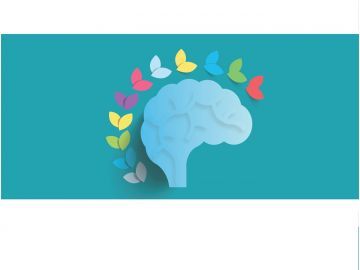Training program:
- Emotional Intelligence: An Introduction.
- What is Emotional Intelligence? Dependence of professional and personal success on emotional competence.
- Emotional Intelligence: EQ or EI?
- Various concepts of emotional intelligence, their features and differences (the concepts of D. Goleman and the concepts of Yale University).
- The role of emotional intelligence in business. How to use emotions in business.
- Business game "The influence of emotions on people's behavior and the result of activity."
- Emotions, intelligence and neurophysiology.
- Theories of emotions by R. Pluchek and K. Izard. Causes of emotions.
- Where emotions are born: the basics of neurophysiology.
- The influence of various emotions on the intellectual abilities of a person.
- Emotional Literacy in Life and Business
- Managing emotions: why is it so difficult?
- The main components of emotional competence (express - diagnosis of one's emotions and the level of understanding of the emotions of other people).
- Emotional intelligence as a combination of four abilities.
- The difference between emotions and emotional state, mood and feeling. Basic emotions.
- ABC of Emotions case
- Emotional Intelligence Development Practices: Managing your own state and the emotions of others.
- We are so different: typical emotional communication styles.
- The Emotional Influence Model: Our Emotional Messages and Responses
- Interlocutor.
- Accepting the feelings of another person as the basis of harmonious contact.
- Proactive and reactive behavior; zones of direct and indirect influence.
- Understanding and analyzing emotions:
— emotions aimed at increasing the efficiency of thinking and activity: “find and apply”;
— emotions that reduce the effectiveness of thinking and activity: "find and neutralize".
- Emotion management: "take control of your mood".
- How to properly use the energy of "negative" emotions.
- Rresource force of emotions and their influence on the result. Neurolines.
- Emotional Intelligence Development Plan (homework).
Coach reserves the right to:
- Swap themes/topics
- Shorten or lengthen topic/topic block time
- Replace themes/thematic blocks with others of your choice in order to best implement the individual tasks of the participants.
Teaching methods: training is conducted as a set of exercises and techniques aimed at getting to know and understanding yourself and the people around you, 80% of the time is practice.
Trainings and seminars:
- Inspirational Coaching Guide
- "Emotional Intelligence and Emotional Leadership"
- "Effective Communication Skills"
- Public Speaking Skills
- Stress Management
- Conflict Management
- Personal Influence Skills
- "Result Management Skills"
- "Effective Management Skills"
- "Business Correspondence"






































